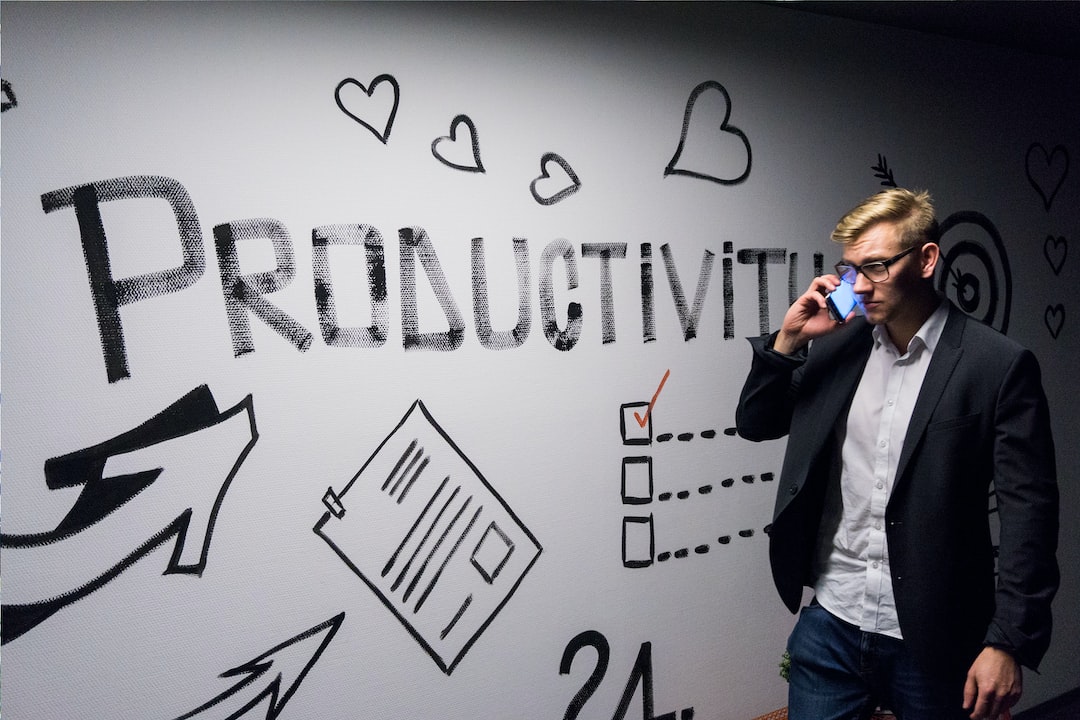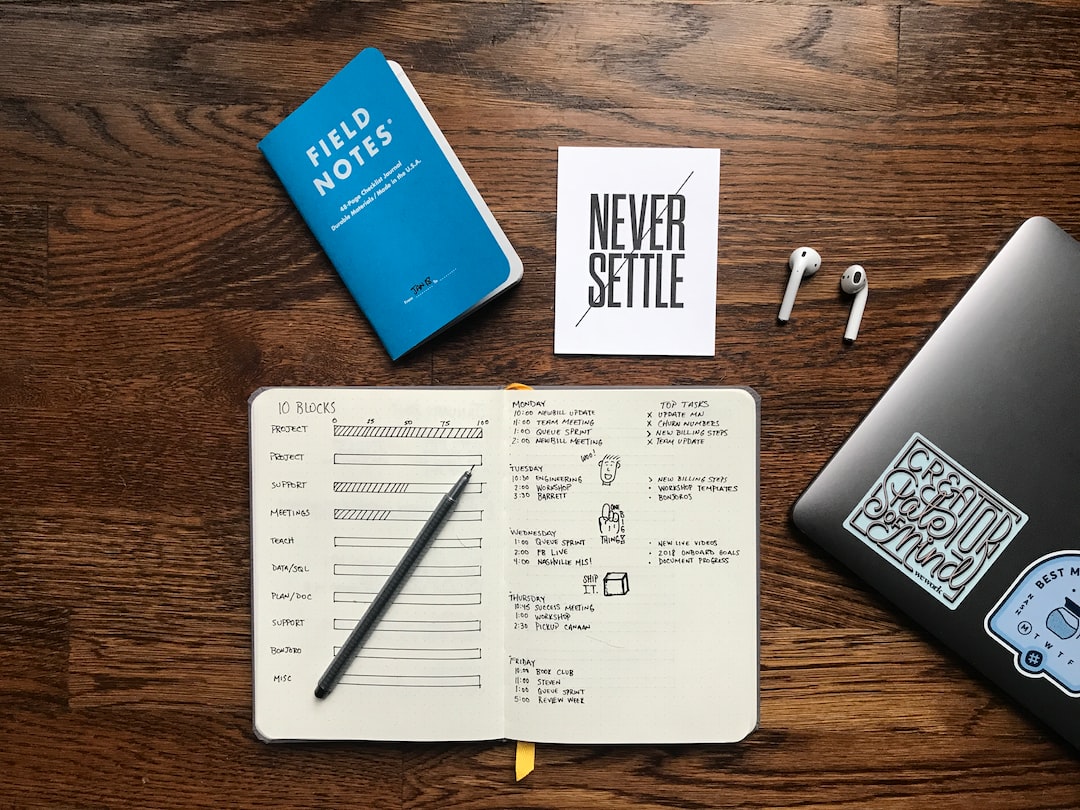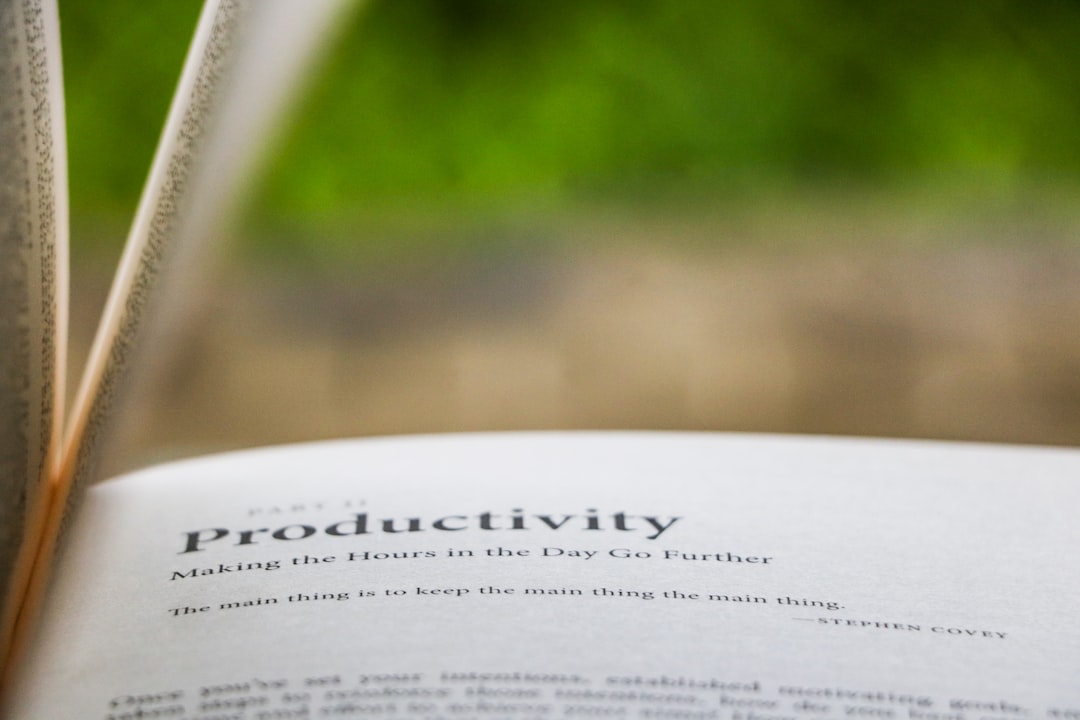15 Tips And Tricks On How To Leave Work On Time (Without Getting Caught)
15 Tips And Tricks On How To Leave Work On Time (Without Getting Caught)
1. Come in early and leave early
It’s the end of the day, you’re ready to go home, but you can’t leave just yet. You have to wait for your boss to leave so you can slip out unnoticed. Sound familiar? If you’re stuck in a job that you hate, it can feel like you’re stuck in a prison. But don’t worry, there is a way out!
In this article, we will show you 15 tips and tricks on how to leave work on time (without getting caught). These tips will help you make a clean getaway and finally have the freedom to start enjoying your life outside of work. So what are you waiting for?Keep reading to learn more!
https://unsplash.com/@mailchimp
2. Get your work done during work hours
The key to successful time management at work is to get your entire workload done during the hours you are actually at your job. That way, when it’s quitting time, you can leave without feeling guilty that there’s still a lot of work to be done. Here are a few tips to help you get your work done during work hours:
- Make a list – Start your day with a list of tasks you need to complete, prioritize them, and cross them off as you finish them.
- Take regular breaks – Working too hard for too long will lead to burnout, so make sure to take regular breaks throughout the day.
- Stay organized – Keep your workspace organized so you don’t waste time looking for important documents.
- Set deadlines – To make sure your tasks get done on time, set reasonable deadlines for yourself.
- Set a timer – Set a timer for each task and stick to it. This will help keep your focus and stay on track.
- Learn to say no – Don’t take on more than you can handle. Learn how to say no to tasks you don’t have time for.
https://unsplash.com/@schmaendels
3. Have a set time to leave and stick to it
Setting a specific time to leave each day and sticking to that timeline is key to understanding how to leave work on time without getting caught. Here are some tips on setting a time to leave work:
- Set a goal – Setting a goal for when you will finish your work will give you an idea of when you should wrap up your work for the day.
- Block out the time – Blocking out the time you plan to leave in your calendar will help you stay on track. It will also help remind you of your goal from earlier.
- Cut down on meetings – Ask yourself if a meeting is absolutely necessary. If not, try to minimize your meetings so you can finish your work on time.
- Check in with yourself – Every couple of hours, check in with yourself and remind yourself of your goal. Also, be sure to check if you’re on track to finish everything on time.
- Stick to that timeline – And most importantly, stick to the timeline you set for yourself and don’t take on more than you can handle.
https://unsplash.com/@carlheyerdahl
4. Take your breaks during the day
It is important to take regular breaks throughout your workday. Taking brief moments away from your work will help you to stay productive and focused, while also allowing you to clear your head and get some fresh air or have something to eat.
Here are some tips to help you take effective breaks:
- Schedule your breaks – Scheduling your breaks will help you to stick to your goals and avoid slacking off.
- Prioritize your tasks – Before taking a break, prioritize your tasks and work on the most difficult ones first.
- Get physical – Try to get up and move during your breaks. Go for a walk or do some simple exercises to get some physical activity.
- Take your eyes off the screen – During your break, you should try to take your eyes away from the screen. Try reading a book or have a conversation or two with co-workers.
- Refocus – Take a few minutes to refocus when you return from your break. This will help you to reset and become more productive.
https://unsplash.com/@minhphamdesign
5. Use your lunch break effectively
It is important to use your lunch break productively. This means avoiding scrolling through social media or wasting time during your break. Here are some tips to help you use your lunch break effectively:
1. Plan your break – Before taking your lunch, plan what you want to do during the break. This will help keep you focused and productive.
2. Take advantage of daylight – If you can, try to take your break outside and get some fresh air. This will help you to reset and recharge.
3. Get off-site – Taking your lunch off-site can help you to avoid wasting time. You can walk to a nearby park, cafe or even take a short drive to a nearby restaurant.
4. Don’t forget to eat! – Taking a break should never involve forgetting to eat. Make sure you take the time to give your body the nourishment it needs.
5. Unplug – During your break, it’s important to unplug from work and relax. Step away from your laptop and phone and take a break from work-related thoughts or tasks.
https://unsplash.com/@mattragland
6. Don’t do personal errands during work hours
It’s very easy to get tempted to do personal errands such as grocery shopping or running to the bank during work hours. However, this can be a major time drain and can make it harder for you to leave work on time. Instead, it’s a better idea to do personal errands before or after work or during your lunch break.
If you must do an errand during work hours, don’t forget to deduct the time from your lunch break. Don’t forget to consider how long it will take you to complete the errand and if it’s really worth taking the time away from your work.
Make sure you plan ahead and figure out what errands you need to run and when you should do them. This way, you won’t find yourself running errands during work hours inadvertently. If you are running an errand during your lunch, let your co-workers know and if you can, plan the errand when most of your team is out on break so that you won’t leave your team in a lurch.
https://unsplash.com/@finesite
7. Get organized
Getting organized is important if you want to make sure you can leave work on time. Start by making a schedule and sticking to it as closely as possible. Decide what tasks you need to complete each day and prioritize them. That way, you can focus on the most important tasks.
It’s also important to use your time wisely. If possible, group tasks that involve similar processes so that you’ll be more efficient and finish faster. Also, make sure to set timers and reminders so that you won’t be distracted by emails and other tasks by the time it’s time to leave.
Finally, make sure to have clear boundaries between work and home. Avoid doing work after hours as much as possible. This will help you focus and make sure that you’re efficient and productive during the workday. That way, you won’t have to rush to finish everything at the end of the day.
https://unsplash.com/@sadswim
8. Set priorities
Setting priorities is an important skill when it comes to being able to leave work on time. It is important to be able to identify and separate more important tasks from the less important ones.
Creating to-do lists can be a great way to prioritize your tasks. Make sure to keep the to-do list visible, that way it can be easily accessed when needed.
Also, rank your tasks based on importance and urgency so you can decide what to work on first.
Finally, draw a line in the sand on where you decide to draw the line for taking on too many projects and tasks. That way you can be sure you won’t spend too much time at work.
https://unsplash.com/@mailchimp
9. Delegate and build a team
Delegating tasks and building a team are essential components of being able to leave work on time. Delegation works best when you understand each of your team members’ strengths and weaknesses and can assign tasks accordingly.
Also, look further afield and build partnerships with other teams, departments and organisations. Building partnerships can be a great way to gain access to knowledge and expertise that may be outside of your organisation.
Another great solution for delegating and building a team for projects is to use online collaboration tools. They make communication efficient and allow multiple people to work on the same project simultaneously.
By delegating and building a team you are able to leverage the strengths and expertise of others whilst allowing yourself the freedom to focus on more important tasks. As a result, you are better equipped and more likely to leave work on time.
https://unsplash.com/@stilclassis
10. Say no
One of the hardest things to do when trying to leave work on time is to say ‘no’. Saying no can be difficult, especially if you want to be a team player and go above and beyond to help your colleagues.
However, it is essential to set and stick to your own boundaries. You know your own limit better than anyone else and taking on too much could lead to burn out.
When you have too much to do or have tasks added to your plate, consider if the task is in your job scope and if it is a priority. Make sure to ask for clarification and if needed, speak to your boss or colleagues to help you to set a realistic timeline for the task.
Remember, saying ‘no’ isn’t easy, but it is essential for safeguarding your time and health. If you are wise about it, you’ll be able to leave work on time without feeling guilty or stressed.
https://unsplash.com/@isaacmsmith
11. Avoid distractions
Leaving work on time requires focus and dedication. So, it’s important to try to avoid distractions as much as possible. This requires discipline, especially when it comes to social media, checking emails or answering useless small talk.
Try starting your day by outlining your tasks in order of importance. Prioritize any urgent tasks such as client calls and emails. This will ensure that you are not distracted by unimportant tasks when you are in the zone working.
Decrease distractions by turning off notifications on your phone, laptop, and other devices. This way, you won’t be distracted by endless notifications that can lead to time wastage.
Also make sure to set boundaries between work and your personal life. Let your colleagues and team members know that you are leaving work on time. This will provide added pressure to actually follow through on your own goals.
12. Automate and streamline
Automation and streamlining is key when it comes to leaving work on time. Making your work process more efficient will help to increase your productivity and enable you to complete projects in a timely manner.
Start by automating the tasks you can. This means creating systems and processes that will help you work faster and more productively. Technology can be used for automation in almost any industry to make tasks easier and faster. Look into using bots, software applications, and AI to make tasks such as data entry, customer service tasks, and more automated. You will be able to get more done in less time so that you can leave work on time.
Streamlining your workflow is also essential when it comes to leaving work on time. Look for how to optimize your tasks in order to get more done in less time. This means planning ahead, delegating work, and focusing on multiple tasks at once. It also means simplifying your processes, tasks, and timelines. Set clear goals and create a plan of action. Keep yourself accountable and on track to get the job done in a timely manner so that you can leave work on time.
13. Cut down on meetings
Meetings are a necessary part of the work environment. However, meetings can become too long and take away time away from getting your important work done. To ensure you can get the important things done while still attending meetings, make sure to cut down on unnecessary meetings and have efficient meetings when you do have them.
Here are some tips on how to cut down on meetings and make them more efficient:
- Set a limit on how long the meeting will last and make sure it stays within that timeframe.
- Start the meeting on time and stick to the agenda.
- Avoid multi-topic meetings and stick to one issue at a time.
- Encourage people to come to meetings prepared with research and ideas.
- Have a designated organizer that keeps the meeting on top of tasks and ensures everyone follows the agenda.
- Record and summarize the meeting with action items for members to follow.
- End the meeting on time and give everyone a chance to speak up.
By following these tips, you can make sure that you get your important work done, while still attending the necessary meetings. This will help you to leave work on time, while still completing all the tasks you need to do.
14. Work from home
Working from home is another great way to help you leave work on time. Many companies are now allowing employees to work remotely, either full-time or part-time. Working from home allows you to have more flexibility in when and where you can get your work done.
By working from home, you can control your own schedule and work on tasks when you are most productive. You can also eliminate workplace distractions, helping you to get your work done faster and more efficiently.
However, it is important to keep in mind that working from home requires discipline and structure. You need to have a designated workspace with minimal distractions to ensure you are working productively. Additionally, make sure to establish clear boundaries between your work and home life to avoid burnout.
If you follow these tips, working from home can be an excellent way to help you leave work on time. This will help you to accomplish your work goals, while also having the flexibility to enjoy your evenings and weekends.
15. Check in with your boss
Checking in with your boss is a great way to stay in the loop at the office. It can also help you stay on top of your tasks and make sure you are leaving on time.
To do this, try making a weekly meeting with your boss or check in with them throughout the week to update them on your progress. This will help them understand what type of work you are doing, how long it is taking, and any challenges you’re facing.
Checking in with your boss also gives you the opportunity to get clarification on tasks or ask for help if needed. This will help ensure you don’t get into a time crunch or have to stay late at the office.
Lastly, this will help build strong relationships between you and your coworkers, which can lead to better working conditions and more opportunities.
By creating a habit of checking in with your boss, you can be sure you are staying on track with your tasks and leaving work on time.
For any question, please contact us in OpenTimeClock.com. https://www.opentimeclock.com.
Created with the Personal Edition of HelpNDoc: How to Protect Your PDFs with Encryption and Passwords









